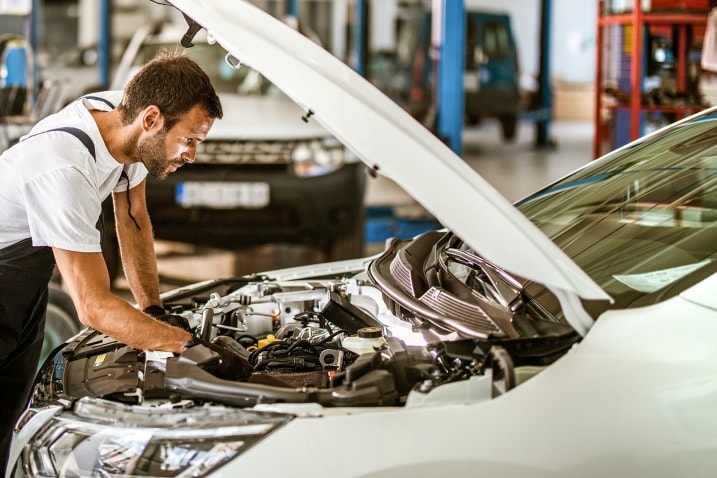All Categories
Featured
Unforeseen vehicle fixings can interrupt your finances, making automotive repair service insurance coverage an eye-catching alternative for many chauffeurs. Whether you're a new vehicle owner or managing an older vehicle, recognizing the details of vehicle repair insurance policy and coverage is important for making informed decisions.
What Is Automotive Repair Work Insurance Policy?
Automotive repair service insurance, frequently called mechanical breakdown insurance coverage (MBI), is a policy developed to cover the costs of replacing or repairing car elements after a failure. Unlike standard auto insurance coverage, which resolves accident-related problems, fixing insurance policy focuses on mechanical concerns unrelated to crashes.
What Does It Cover?
The specific coverage differs depending on the insurer and the strategy you choose. Normally, repair insurance coverage covers:
Engine Repair works: Including parts like the timing belt, pistons, and cyndrical tube heads.
Transmission Services: Covering the gearbox and relevant parts.
Electrical System: Resolving issues with generators, starters, and onboard computer system systems.
Air Conditioning and Home Heating Systems: Such as radiators, thermostats, and cooling units.
![]()
Guiding and Suspension: Including shocks, shows off, and power steering systems.
However, policies commonly omit routine maintenance, wear-and-tear things like brake pads or tires, and aesthetic problems.
![]()
Who Needs Automotive Repair Work Insurance?
While repair insurance policy isn't obligatory, it can be useful for:
Proprietors of Older Cars: If your auto is out of warranty, repair insurance coverage can provide satisfaction versus expensive failures.
Constant Travelers: High-mileage chauffeurs are more probable to experience mechanical issues, making insurance coverage a beneficial investment.
Chauffeurs of Expensive Models: Luxury or specialized vehicles often have greater repair expenses, which can be alleviated by insurance.
Trick Benefits
Financial Security: Assists avoid big, unanticipated repair expenses.
Adaptability: Policies can be customized to cover details parts or systems.
Satisfaction: Decreases stress about possible break downs.
Considerations Prior To Acquiring
Prior to dedicating to an automobile repair insurance coverage policy, take into consideration these aspects:
Policy Terms and Conditions: Testimonial what is and isn't covered to avoid shocks during a case.
Deductibles: Recognize the out-of-pocket prices you'll require to pay prior to coverage kicks in.
![]()
Repair Work Store Options: Some insurance providers need you to make use of specific repair centers, which might be bothersome.
Costs Expenses: Evaluate the yearly cost of the policy versus the likelihood of requiring significant fixings.
Existing Warranty: Examine if your vehicle's supplier or dealership warranty currently supplies enough protection.
Final Thoughts
Automotive repair insurance can be an important safeguard, particularly for chauffeurs worried about the high expenses of unexpected repairs. By carefully reviewing plan choices and aligning them with your driving habits and car needs, you can determine if this insurance coverage is ideal for you. For added security, always keep normal car maintenance to lessen breakdown threats and maximize your insurance benefits.
What Is Automotive Repair Work Insurance Policy?
Automotive repair service insurance, frequently called mechanical breakdown insurance coverage (MBI), is a policy developed to cover the costs of replacing or repairing car elements after a failure. Unlike standard auto insurance coverage, which resolves accident-related problems, fixing insurance policy focuses on mechanical concerns unrelated to crashes.
What Does It Cover?
The specific coverage differs depending on the insurer and the strategy you choose. Normally, repair insurance coverage covers:
Engine Repair works: Including parts like the timing belt, pistons, and cyndrical tube heads.
Transmission Services: Covering the gearbox and relevant parts.
Electrical System: Resolving issues with generators, starters, and onboard computer system systems.
Air Conditioning and Home Heating Systems: Such as radiators, thermostats, and cooling units.

Guiding and Suspension: Including shocks, shows off, and power steering systems.
However, policies commonly omit routine maintenance, wear-and-tear things like brake pads or tires, and aesthetic problems.

Who Needs Automotive Repair Work Insurance?
While repair insurance policy isn't obligatory, it can be useful for:
Proprietors of Older Cars: If your auto is out of warranty, repair insurance coverage can provide satisfaction versus expensive failures.
Constant Travelers: High-mileage chauffeurs are more probable to experience mechanical issues, making insurance coverage a beneficial investment.
Chauffeurs of Expensive Models: Luxury or specialized vehicles often have greater repair expenses, which can be alleviated by insurance.
Trick Benefits
Financial Security: Assists avoid big, unanticipated repair expenses.
Adaptability: Policies can be customized to cover details parts or systems.
Satisfaction: Decreases stress about possible break downs.
Considerations Prior To Acquiring
Prior to dedicating to an automobile repair insurance coverage policy, take into consideration these aspects:
Policy Terms and Conditions: Testimonial what is and isn't covered to avoid shocks during a case.
Deductibles: Recognize the out-of-pocket prices you'll require to pay prior to coverage kicks in.

Repair Work Store Options: Some insurance providers need you to make use of specific repair centers, which might be bothersome.
Costs Expenses: Evaluate the yearly cost of the policy versus the likelihood of requiring significant fixings.
Existing Warranty: Examine if your vehicle's supplier or dealership warranty currently supplies enough protection.
Final Thoughts
Automotive repair insurance can be an important safeguard, particularly for chauffeurs worried about the high expenses of unexpected repairs. By carefully reviewing plan choices and aligning them with your driving habits and car needs, you can determine if this insurance coverage is ideal for you. For added security, always keep normal car maintenance to lessen breakdown threats and maximize your insurance benefits.
Latest Posts
Visit Red Hawk Pub: Gourmet Food & Relaxing Vibes.
Published Jan 07, 25
1 min read
Experience Red Hawk Gastropub: Twin Falls' Favorite Restaurant
Published Jan 07, 25
1 min read
The Total Guide to Automotive Repair Work Insurance
Published Jan 07, 25
0 min read